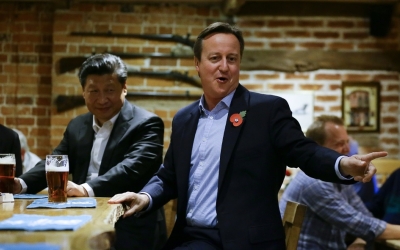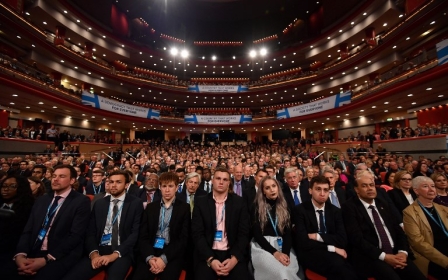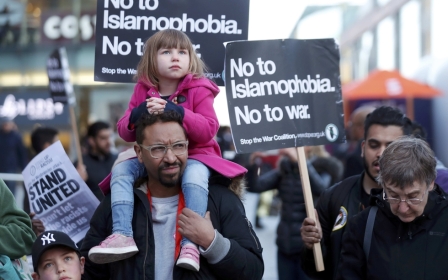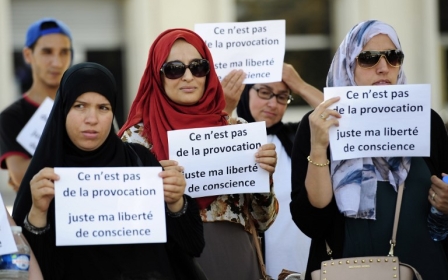Why I dropped out of the Bradford Literature Festival
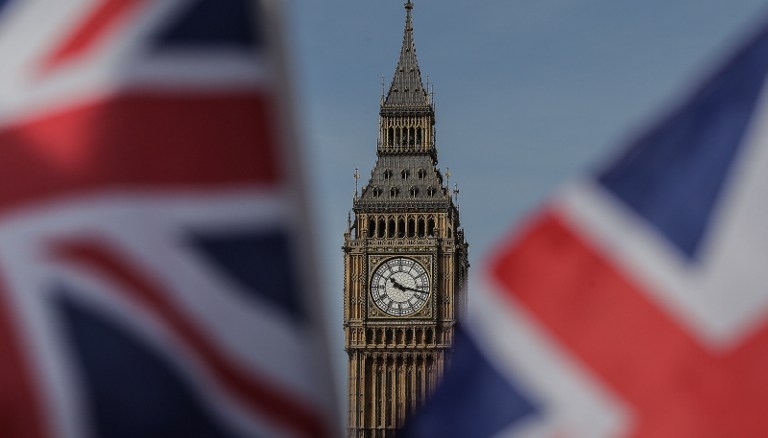
Earlier this month, poet, activist and writer Suhaiymah Manzoor-Khan publicly announced that she was pulling out of this year’s Bradford Literature Festival. Her decision, she said, followed her discovery that the festival had accepted funding from the Home Office’s “Building a Stronger Britain Together” (BSBT) fund, part of its counter-extremism programme.
Manzoor-Khan stated that she was not prepared to be associated with government-led initiatives that criminalise Muslim communities, and that her refusal to participate was based on her conviction that working-class, Muslim, and racialised communities deserve to enjoy culture and art without having to sign up to their own oppression by the state.
Since her original statement, at least 11 other artists and speakers who were scheduled to participate have publicly withdrawn, myself included. Others have contacted us to say they did so privately - and judging by the reactions online, it seems that some festival-goers have started demanding refunds after learning of the funding issue.
Undermining civil liberties
In my case, and as I made clear in a public statement, not only had I been invited to discuss my chapter in a recent book, It’s Not About the Burqa, which discusses the destructive effect of such funding on Muslim - and particularly Muslim women’s - political spaces, but I am also a committed campaigner against the normalisation of so-called counter-extremism programmes.
New MEE newsletter: Jerusalem Dispatch
Sign up to get the latest insights and analysis on Israel-Palestine, alongside Turkey Unpacked and other MEE newsletters
I have written and spoken extensively about how these ideas are used to undermine civil liberties, as well as discriminate against and stigmatise an entire community. I am not prepared to participate in an event funded by an institution that presents the soft face of the state’s so-called war on terror.
Very sorry to announce I will be withdrawing from participating in @BradfordLitFest this year. I have come to the decision after discovering BLF were recipients of a fund from the Counter Extremism programme this year. Very sad and sorry - full statement for my withdrawal below: pic.twitter.com/fcQn2lVO76
— Suhaiymah Manzoor-Khan (@thebrownhijabi) June 19, 2019
In the aftermath of the speakers pulling out, and our subsequent announcement of an alternative event titled “Bradford in Our Own Words: Resisting Counter-extremism Apparatus” on 30 June in Bradford to discuss counter-extremism funding and its consequences, two criticisms have been levelled at us by those who disagree with our actions.
Firstly, we have been accused of conflating initiatives such as BSBT with Prevent. The two are entirely distinct, and the former has nothing to do with the latter, we are told. Secondly, we have been accused of depriving a deprived, and often forgotten, city such as Bradford of the opportunity to enjoy a literature festival.
Criminalising political thought
Yet, despite the repeated claim that the two are fundamentally different, a quick review of the BSBT page on the government’s own website leads to a different conclusion. The BSBT page links, in its first line of text, to the government’s counter-extremism strategy, which repeatedly references Prevent. The document notes that the counter-extremism strategy builds on Prevent and “recognises that we must go further. We must counter the ideology of non-violent and violent extremists alike.”
This link is especially harmful in its focus on so-called “non-violent” extremism. This category has been used to blur the focus of counter-extremism work massively, using anxieties about terrorism to criminalise political thought, roll back civil liberties, and aggressively shrink the space for public debate.
The targeting of Palestine activists, Islamic societies on campuses, or even anti-fracking campaigners has all taken place under the cover of this category. Extremism has been stretched as a concept to such an extent that it can now encompass anyone who challenges institutional oppression, British foreign policy, or - of course - the government’s counter-extremism programme.
The government’s approach is therefore clear. While Prevent, and the wider UK counter-terrorism strategy that it is a part of, do the heavy lifting by directly targeting, criminalising, and “re-educating” so-called non-violent extremists (that’s activists and political Muslims to you and me), the BSBT strategy presents a softer touch that normalises these ideas across society. It lays the ideological groundwork for the direct assault on civil liberties. Such criminalisation of thought should surely have no place in a literature festival.
Taking a collective stand
This links directly to the second critique that has been levelled at us: Bradford deserves to enjoy a literature festival, and it is being denied this enjoyment by overzealous activists.
Again, let’s be clear. Bradford does deserve a literature festival, and many of us have been strong supporters of this festival for many years. We plan to continue to do so in the future, when it refuses counter-extremism funding. But Bradford deserves to enjoy art and to engage in mass cultural events, without being asked to accept ideas and practices that disproportionally target Muslims and racialised communities.
Culture and art can set us free, but not while the boot of the state presses down on our necks
Predominantly working-class Muslim areas should not be faced with a situation in which austerity deprives them of educational and cultural infrastructure, and the government continues to underfund public art, only for the state to offer a palliative that involves criminalising political resistance and ideas.
Bradford deserves to enjoy culture and art like everyone else does: free of the fear of repression, surveillance and criminalisation. This is not possible in the context of the government’s counter-extremism funding.
By taking a strong and collective stand this year, by working with local community activists to offer an alternative event to debate and discuss the counter-extremism strategy, and by deciding to make the dangers and pitfalls of normalising counter-extremism funding public, we are laying the foundation for future events in Bradford and elsewhere to provide our communities with the beauty of creativity, far away from the repressive arm of the state. Culture and art can set us free, but not while the boot of the state presses down on our necks.
The views expressed in this article belong to the author and do not necessarily reflect the editorial policy of Middle East Eye.
Middle East Eye delivers independent and unrivalled coverage and analysis of the Middle East, North Africa and beyond. To learn more about republishing this content and the associated fees, please fill out this form. More about MEE can be found here.



